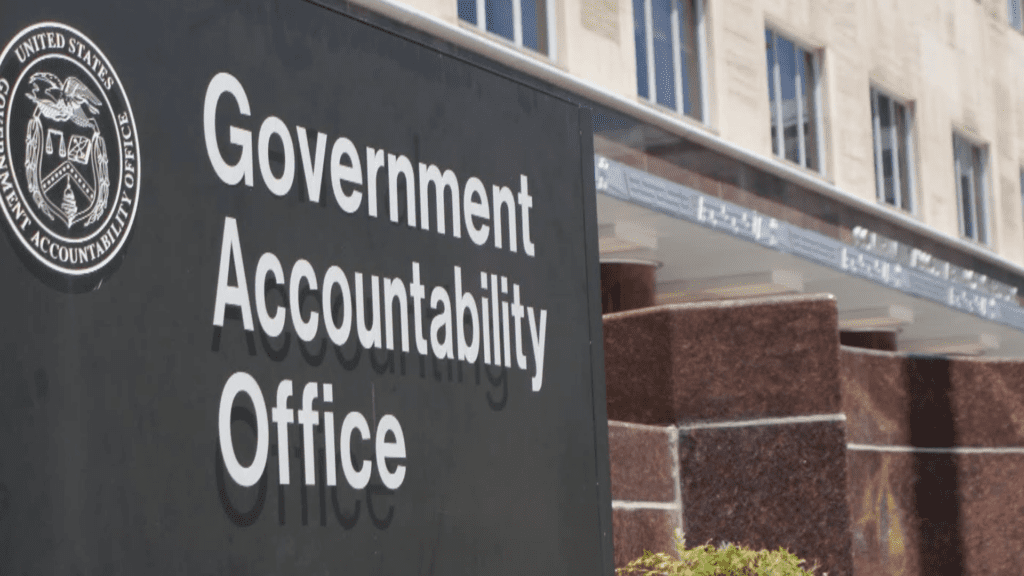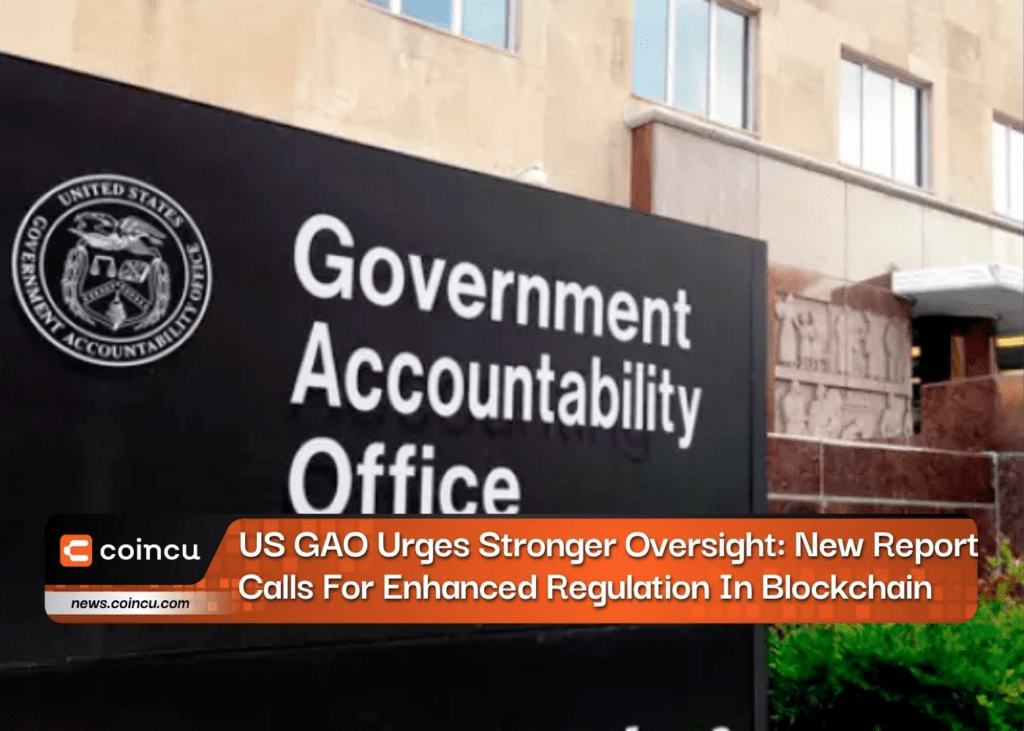Key Points:
- The US Government Accountability Office (GAO) has released a report calling for more regulation in blockchain finance, focusing on crypto asset trading platforms and stablecoins.
- The GAO recommends designating a federal regulator to ensure comprehensive oversight and address the lack of coordination between existing regulatory agencies.
- The report also acknowledges blockchain’s potential to improve government processes, citing the Small Business Administration (SBA) as an example where blockchain integration could resolve data collection and analysis delays.
The United States Government Accountability Office (GAO), a Congressional watchdog agency, has recently released a comprehensive 77-page report urging the need for more regulation in the use of blockchain technology within the finance sector.

The report, which was requested before the midterm elections by Reps. Maxine Waters and Stephen Lynch highlight the lack of adequate regulation for crypto asset trading platforms and stablecoins. As a result, the GAO recommends designating a federal regulator to ensure comprehensive oversight.
The report sheds light on the regulatory gaps surrounding crypto asset trading platforms and stablecoins, pointing out that they currently lack the robust regulation enjoyed by traditional assets. While some limited oversight is provided by agencies like the Treasury’s Financial Crimes Enforcement Network and state money transmitter licensing, it falls short of providing consistent and comprehensive prudential regulation and oversight.
Stablecoins, in particular, require attention regarding the composition of their reserves, auditing, disclosures, and redemption rights. The current regulatory landscape, which involves various measures from the Securities and Exchange Commission, Commodity Futures Trading Commission, and state-level authorities, lacks uniformity and coherence.
Addressing the unique challenges posed by decentralized finance (DeFi), the GAO suggests that regulation should be inversely related to the level of decentralization. When a DeFi ecosystem operates in a fully decentralized manner, it becomes challenging to identify individuals responsible for governance and operations, potentially spanning multiple regulatory jurisdictions.
One of the major issues raised in the report is the lack of coordination between regulators, leading to slow responses to market innovations. To address this, the report recommends establishing a formal coordination mechanism among the seven relevant regulatory agencies.
This mechanism would be tasked with identifying risks associated with blockchain-related products and services and formulating a timely regulatory response. The Treasury’s Financial Stability Oversight Council was already tasked with spearheading efforts to create a unified approach to crypto asset oversight following the March 2022 Executive Order on Responsible Development of Digital Assets.
While the GAO’s recommendations are not legally binding, they carry significant moral weight. Among the regulatory agencies, the National Credit Union Administration expressed agreement with the need for greater coordination, while others neither agreed nor disagreed.
It is worth noting that the GAO has previously acknowledged the potential of blockchain technology to improve various government processes. In a separate report submitted to a congressional request, the GAO highlighted how blockchain integration within the Small Business Administration (SBA) could offer substantial benefits. By leveraging blockchain, the SBA could address the persistent delays in collecting and analyzing information from small businesses, potentially resolving delays of up to 16 months between 2016 and 2021.
As the discussions around blockchain regulation continue to evolve, policymakers will likely consider the GAO’s recommendations seriously. Striking the right balance between innovation and oversight will be crucial for shaping the future of blockchain technology in the finance sector.
DISCLAIMER: The information on this website is provided as general market commentary and does not constitute investment advice. We encourage you to do your own research before investing.





